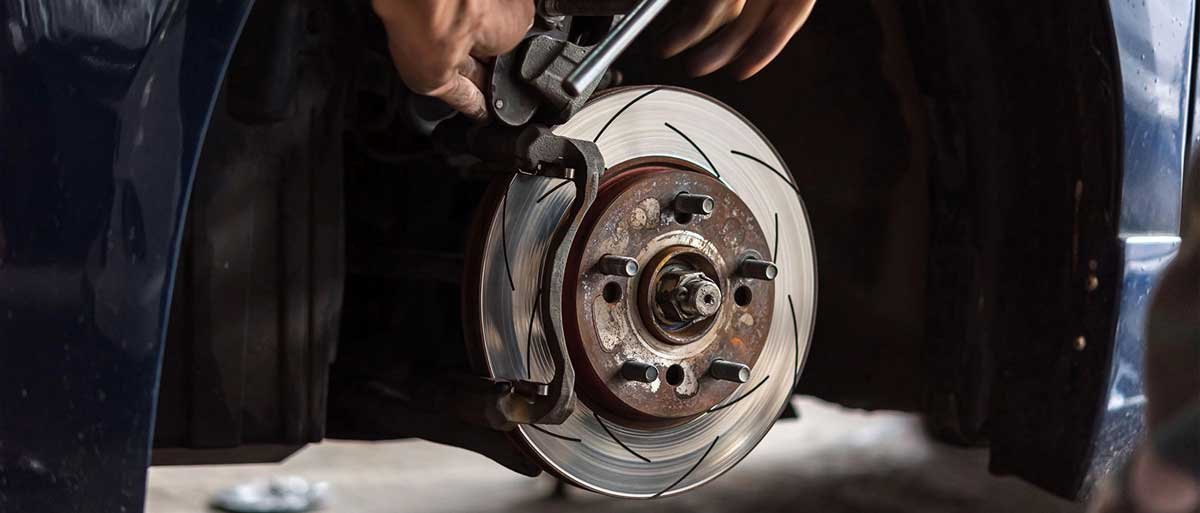
The importance of a car brake check cannot be overstated, especially in the event of an accident. As a preventative measure, get your car’s brakes tested regularly and take it in for regular brake job repair in New Orleans. As a result, you’ll be less likely to be involved in an auto accident. So, take care of your brakes, as it will save you money in the long run compared to having to pay an auto shop after an accident.
3 Common Brake Problems in New Orleans
- A brake pedal that’s spongy
A spongy brake pedal indicates a serious problem with your brakes, and you shouldn’t attempt to drive any farther if you don’t want to put yourself and others in danger. In most cases, if the brake pedal dips to the floor or feels mushy, the braking system has a leak. As a result, your brake fluid reservoir should be the first place you check. Make an appointment with a repair shop in New Orleans as quickly as possible if the fluid level drops below the low-level mark.
- Stiff brake pedal
The brake booster is the most probable suspect in the case of a firm brake pedal. The booster’s purpose is to make it easier to depress the brake pedal. Make that the booster’s huge vacuum hose is attached. If not, re-insert it back in. If your vehicle’s brakes seem sluggish after you’ve had them repaired, you should take it back to the shop to have them reworked.
- When you use the brakes, the steering wheel shakes
Brakes may cause a vehicle to tremble if the rotors or drums are deformed. It’s unfortunate, but there’s no quick fix for this prevalent issue. Rotors or drums will need to be resurfaced or replaced.
How Often Do Brakes Need to be Serviced?
Your most critical safety feature, the braking system, is made up of several components that must all be serviced by an auto repair shop in New Orleans on a regular basis. It doesn’t matter how you drive or what you drive on, your brakes will eventually need replacement.
In accordance with the manufacturer’s recommendations, brake pads should be changed or examined every six months by a qualified technician or 20,000-60,000 miles by most individuals when they have their tires rotated. Inspections may be required more regularly depending on the sort of road and traffic you see on a daily basis.
If you put off having your brake pads replaced, you might end yourself with a far more serious problem down the road. Eventually, if your brake pads become too thin, they will no longer safeguard you and your vehicle.
Signs and Symptoms of Failing Brakes in New Orleans
- Brake light is on
It’s either time for routine maintenance or a warning of a possible issue if your dashboard shows the brake light indication is on. Possible reasons for the dashboard indication may be found in your vehicle’s owner’s handbook. Keep in mind that the parking brake may be to blame in some cases. Check to see whether the alarm goes away once you release it.
- Squealing sounds
Brake pad wear indications may sound like a piercing screech that goes away when you press the brake pedal hard. This sound may be heard when they first touch the rotor without using the brakes. Brake pads are worn out and need to be changed before rotor damage occurs, which may be expensive to rectify. This is the most prevalent braking issue that people encounter.
- Vibration or wobbling during braking
Your rotor may be unequal in thickness if your steering wheel or car rattles when you use the brakes. There are two parts to the brake system: the rotors and the pads. In order to stop your wheels from spinning, you need to use the brakes.
- When braking, the car jerks in a certain direction.
This could be due to a faulty brake hose or a malfunctioning caliper. This may lead to imbalanced braking and lopsided driving in a certain direction, since one caliper may be delivering more or all the pressure when stopping. It’s imperative that the source of this brake issue be identified and remedied quickly in an auto repair shop in New Orleans.
Why Get A Brake Assessment?
A verified result is the only method to assure that your brakes are in the finest possible operational condition.
To confirm that the braking system is working correctly, a test drive may be performed. As a bonus, it might help you discover additional issues with the car.
Brake lining wear, rotor thickness, rotor condition, hose and line wear, rear braking and warning lights, as well as a test drive to discover any probable brake system faults should be included in a comprehensive brake assessment.
Drive Safe in New Orleans with Brake Inspection and Replacement
Making sure your car is as safe as possible while you’re behind the wheel should be on the top of your list. To assist ensure the vehicle’s safety, bring it in for regular checkups to a reliable auto repair shop in New Orleans. We can’t get by without brakes if we want to be safe on the road. Car owners should have a basic knowledge of their vehicle’s braking system and how to do routine maintenance on it.





More Stories
MLM Training Success- The MLM Success Secrets of the Right Warm Market Leads
How Can I Become a Successful Leader in the Mandura Business Opportunity
5 Website Publications You Can Use to Market Your Business